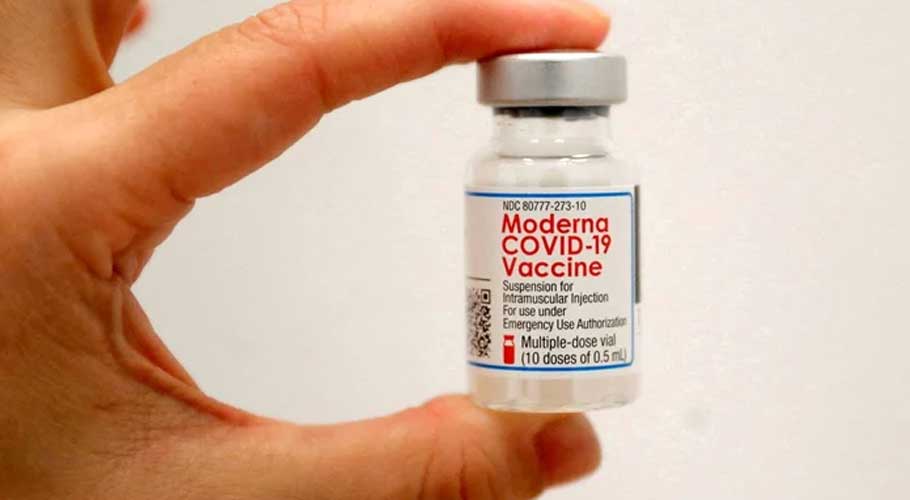LONDON: A booster shot of the Moderna coronavirus vaccine significantly raises the level of antibodies that can thwart the Omicron variant, the biotechnology company announced on Monday.
Currently, Moderna’s booster is administered as a 50-microgram dose. The company noted that this dose increased antibody levels 37-fold, compared with the levels seen when a fully vaccinated person does not receive a booster, and a 100-microgram dose increased antibody levels 83-fold.
It remains unclear what these increases mean as far as how well the booster doses clinically work against Omicron. However, in the company’s statement, CEO Stéphane Bancel called the data reassuring.
“These data showing that the currently authorized Moderna COVID-19 booster can boost neutralizing antibody levels 37-fold higher than pre-boost levels are reassuring,” Bancel said.
It’s now up to US public health authorities to consider whether Moderna’s coronavirus vaccine booster should be given at a larger dose, Dr. Stephen Hoge, president of the company, said Monday.
“The decision of whether to deploy 100 micrograms or a higher dose is really one for public health agencies at this point. We are just providing the data, and obviously we’ll share it with everybody so that they can make that determination,” Hoge said during a company conference call.
US regulators authorized the 50 microgram booster of Moderna’s vaccine in October. The first two shots of Moderna’s vaccine are both 100 micrograms.
Both the Moderna and the Pfizer/BioNTech vaccines have been linked to rare cases of heart inflammation, particularly in young men. Several studies have suggested that Moderna’s vaccine is likely to cause the heart inflammation at a higher rate than Pfizer’s.
Omicron, a highly contagious variant first detected last month in southern Africa and Hong Kong, has raced around the globe and been reported in 89 countries, the World Health Organization (WHO) said on Saturday.





































